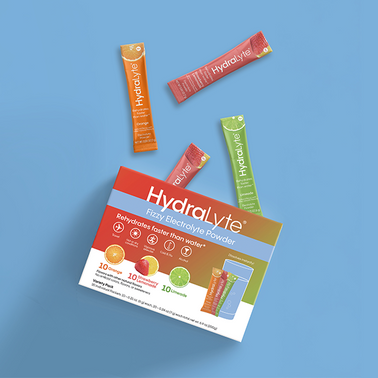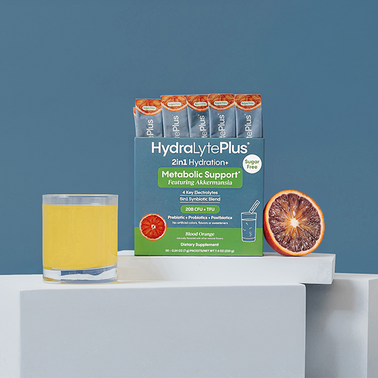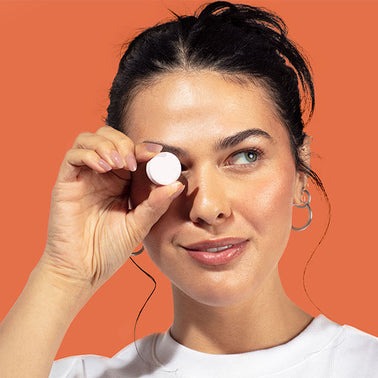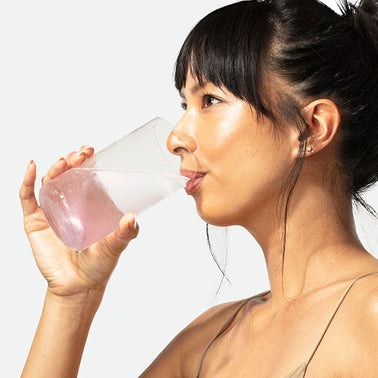Is a pulsing headache a familiar feeling?
Rather than reaching straight for over-the-counter medication, you might want to consider the cause first. Headaches typically feel differently and can be caused by a variety of factors — all of which should be taken into consideration when treating them.
One common trigger for headaches is dehydration, and it often sneaks up on people.
What Is Dehydration?
According to Johns Hopkins Medicine, each of us loses water from our bodies through sweat, tears, breathing, urine and stool. Water lost each day is then replaced by drinking liquids and eating foods that contain water.
However, some people are not able to maintain enough water in their bodies, whether due to illness, extreme physical exertion, overexposure to the sun or other causes.
Dehydration occurs when the body loses water and crucial electrolytes — like sodium or potassium — which isn’t replaced. Depending on your age, weight and the amount of fluid lost, you can experience mild to severe dehydration.
People often don’t feel thirsty until after they’re already dehydrated. According to the Mayo Clinic, dehydration symptoms include:
Infant or young child
- Dry mouth and tongue
- No tears when crying
- No wet diapers for three hours
- Sunken eyes, cheeks
- Sunken soft spot on top of skull
- Listlessness or irritability
Adult
- Extreme thirst
- Less frequent urination
- Dark-colored urine
- Fatigue
- Dizziness
- Confusion
Another sign of dehydration, particularly in adults, is a headache.
Why Dehydration Can Cause Headaches
The importance of water to our bodies is often underestimated.
Your body can’t function properly without enough water. Both physical and cognitive abilities are negatively impacted by dehydration. The National Institutes of Health notes that recent literature has suggested that even mild dehydration — a body water loss of 1-2% — can impair cognitive performance.
According to the NIH, “water acts as a transporter of nutrients, regulates body temperature, lubricates joints and internal organs, provides structure to cells and tissues, and can help preserve cardiovascular function.”
Water is just as critical to the brain.
When we don’t consume enough fluids, our brains can start to shrink from fluid loss. This causes the brain to pull away from the skull, which triggers pain in the meninges, the membrane that surrounds the brain.
Symptoms of a Dehydration Headache
So how do you know when your headache is caused by dehydration?
Headaches are a common symptom of mild to moderate dehydration. In fact, many types of headaches, including migraines, can be triggered by dehydration.
Healthline reports: “A small survey published in the medical journal Headache found that among the people interviewed, 1 in 10 had experienced a dehydration headache. These respondents described the headache as an aching that got worse when they moved their heads, bent down, or walked around.”
A dehydration headache typically won’t include pain in the back of the neck as with a tension headache or pressure in the face as with a sinus headache. Instead, it’s commonly described as a pulsating pain on both sides of the head.
Dehydration headache symptoms also include other general symptoms of dehydration listed above.
How to Get Rid of a Dehydration Headache
Because dehydration headaches occur due to lack of water in the body, short-term fixes involve consuming more fluids:
Drink Water
Healthline reports that most dehydration headaches are relieved within three hours of drinking a glass or two of water. Drinking too fast can sometimes cause vomiting, so take slow sips or suck on a few ice cubes.
Drink Oral Rehydration Solutions
Oral Rehydration Solutions, ORS, go one step further to supporting hydration. An ORS contains the right mix of electrolytes, sugar and water to help replace lost fluids.
Electrolytes are minerals your body needs to survive. They regulate nerve and muscle function, balance blood pressure, help build new tissue and much more. Dehydration can disrupt your body’s electrolyte balance. A low-sugar, electrolyte-rich drink like an ORS can help to rehydrate you more quickly and effectively than water alone because it replaces these important minerals.
Once rehydrated, your brain returns to its normal state, relieving your headache.
Preventing Dehydration Headaches
Rather than reacting to it — or being forced to turn to over-the-counter medication — the best way to avoid the pain of a dehydration headache is to prevent it. How? By drinking plenty of fluid every day.
If you’re prone to dehydration or find it difficult to stay hydrated on water alone, try consuming an oral rehydration solution (ORS) like Hydralyte. An ORS can help whether you’re chasing your kids at the park, hiking a massive peak or recovering from a bout of the flu.
Lori Morgan struggled with headaches for several months after moving to California. No matter how much water she drank, the pain wouldn’t quit, so she began taking Tylenol and Aleve every day just to cope.
“Then I heard about Hydralyte and started taking one packet a day just to see what — if anything — would happen. I haven’t had a headache in a month,” she says. “I have at least one Hydralyte drink every day...It is such a relief to not have to deal with those headaches!”
Staying hydrated has also been a challenge for Rhonda. After seeing Zero Powerade in her cart, Rhonda’s pharmacist recommended Hydralyte to her instead.
“Knowing I can't have sugar, I tried the premixed bottle and loved the flavor,” she says. “It's helped with my sinus headaches and leg cramps. Now I buy the tablets, and keep one at work and one at home.”
Hot days cause Lauren to dehydrate quickly, which also brings on migraines. She found Hydralyte’s powder formula to be effective at curbing this issue, and she now carries the travel-sized powder with her everywhere.
“I will pre-hydrate with one of these on days when I know I'll be out and about in the sun, and mix up another one while out and about,” Lauren says.
Hydralyte’s formula contains the correct balance of glucose and electrolytes for quick rehydration. It’s also hypotonic, which is the most rapidly absorbed fluid type for rehydrating the body’s cells.
While dehydration headaches can be easily treated, the best way to avoid the pain is by actively staying hydrated at all times.










